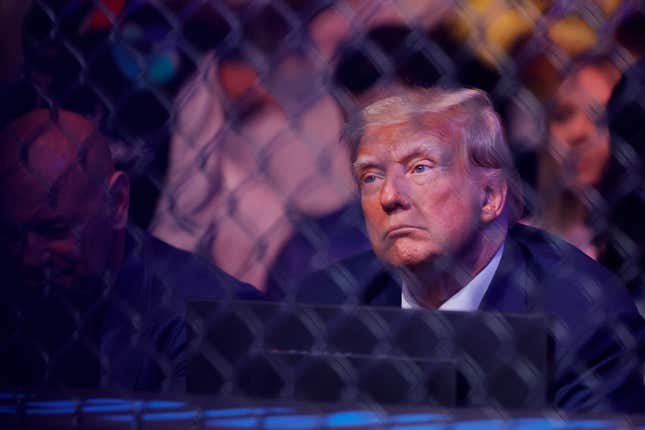
The former president of the United States must now wait to learn, at his sentencing in July, if he will be incarcerated or forced to remain at one of his residences on house arrest as he runs for another term in the White House.
If Trump is jailed, he might not be able to vote in Florida, where he is a legal resident. That’s because, in most cases, felons can’t vote in the Sunshine State unless they have the extraordinarily good fortune of having had their voting rights restored.
Florida is one of the many states in this country where felons typically can’t vote unless, after they serve their prison term and pay all associated fees, they go through a long and often expensive process to have their rights restored.
Many of those vote-denying states are in the American South, and the rationale behind this unusual continued punishment is rooted in white supremacy.
Back in the years after Reconstruction, when newly emancipated Black Americans had their voting rights formally recognized, white Americans feared that they would lose political power if Black folks got the vote.
They had reason to fear. Newly empowered Black voters cast their maiden ballots against the men who had enslaved and oppressed them.
The heady new era of Black empowerment and inclusion didn’t last, though. As the urgency of white Americans to right the wrongs of slavery and discrimination faded, southern white Americans looked for ways to assert and cement their power.
Amendments to the U.S. Constitution forbid them from once again banning Black Americans from voting. They couldn’t be that bold with it.
So, they came up with a new, creative method of making sure folks who would vote against them couldn’t vote. They changed state constitutions to prohibit people convicted of felonies from voting.
With white control over who got arrested, prosecuted and convicted, this was a sure-fire way of capturing for disenfranchisement the very folks white southerners meant to disenfranchise.
It was a brilliant if relentlessly malevolent stroke. And its echoes are felt to this day.
Donald Trump now finds himself to be a white shark caught in a net sewn together for Black minnows. It’s not likely he’ll have to stay in that net long.
Even if Trump is jailed and loses his right to vote, Florida Gov. Ron DeSantis - who once cut a campaign ad with one of his young children dressed in a Trump onesie - would waste no time issuing special dispensation restoring the former president’s right to vote.
Normally, it’s a grueling, humiliating and expensive process to get that right restored.
Reporting on another story several years ago, I personally traveled to Tallahassee, Florida’s capital, to watch as felons begged state officials to let them vote again.
Many had been convicted years before and had led crime-free, exemplary lives since their release. The state officials frequently spoke to them as they’d speak to children, admonishing them about the crimes they committed and demanding a detailed accounting of how they’ve lived and worked since release.
I have not been successful in getting an explanation from a state official for how denying a person who served their sentence the right to vote helps that person or society. But the current system’s continued political benefits to white elected officials in the South remain clear.
By and large, white southerners still control who gets elected, prosecuted, convicted and sentenced. And they still benefit if thousands of Black people can’t vote.
That’s why, despite the passage in 2018 of a constitutional amendment meant to restore felon voting rights, Republicans in the Florida Legislature essentially overrode that vote, enshrining felon disenfranchisement.
Trump, though, shouldn’t worry about the indignity of not being allowed to vote this fall in a presidential election in which he’s one of the candidates.
If necessary, he’d get that special DeSantis dispensation. That’s as certain as Trump’s tie is long and red.
Wayne Washington is a journalist based in Florida

